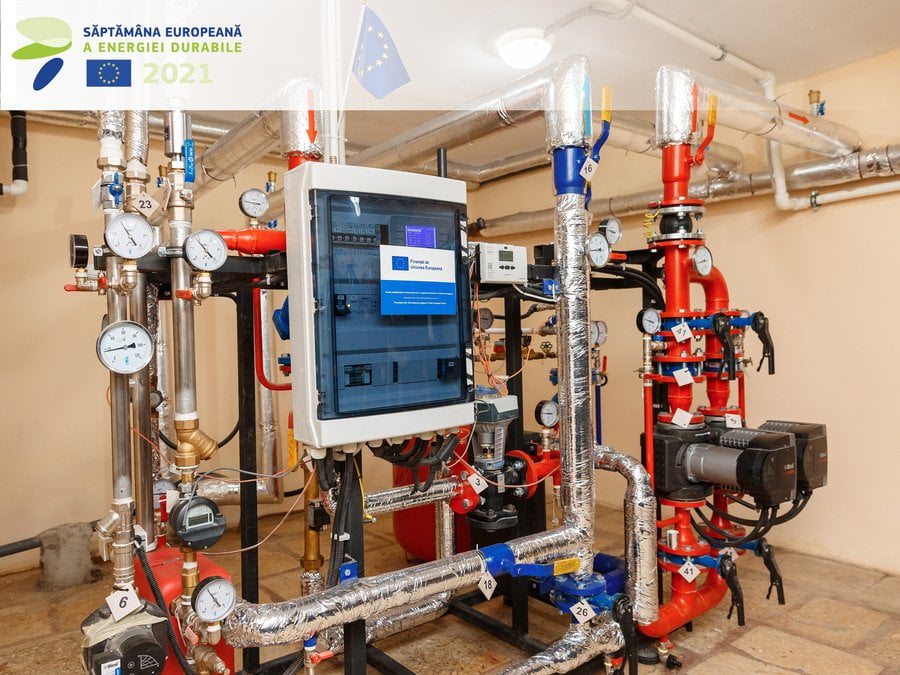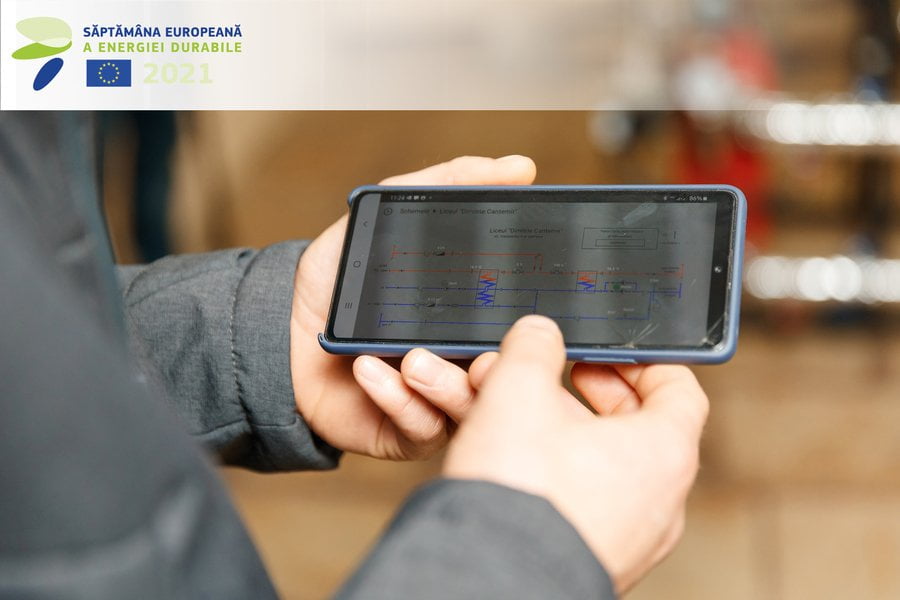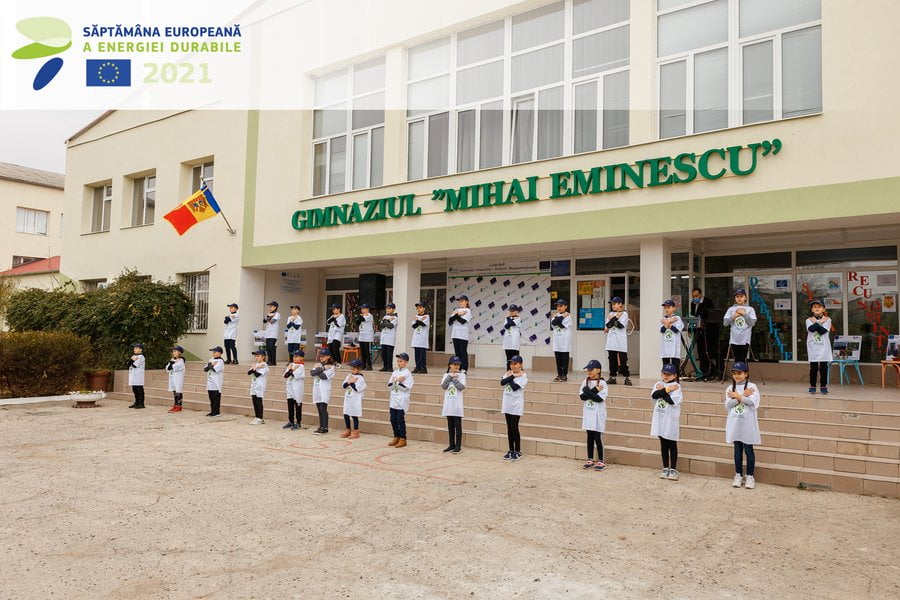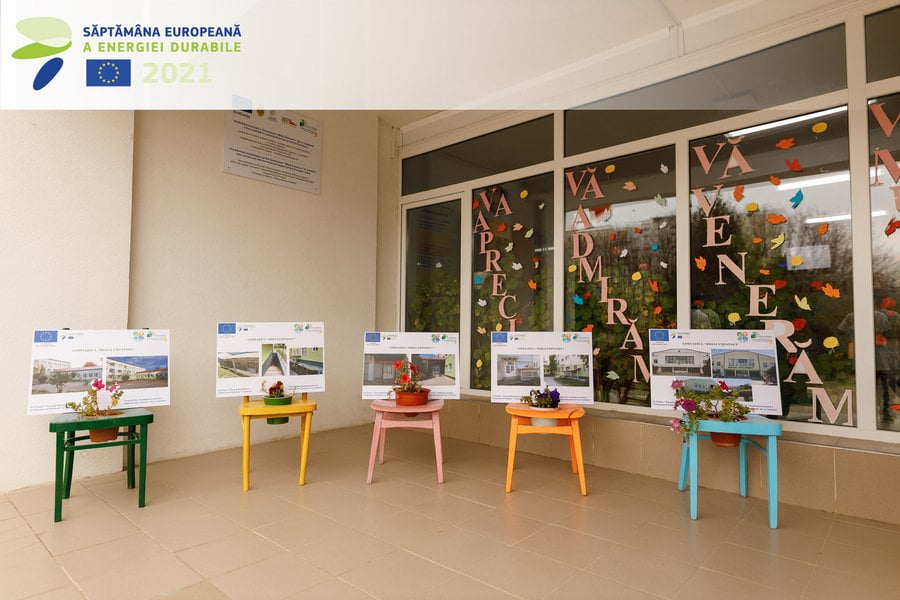Renewable green energy ensures the energy security of four educational institutions in the town of Cantemir, with the support of the European Union. The first biomass boiler plant using vegetable waste collected from vineyards and orchards was built to provide heating to two educational institutions. The official ceremony on the presentation of the project’s results and innovations applied in the locality took place in the context of the European Sustainable Energy Week 2021.
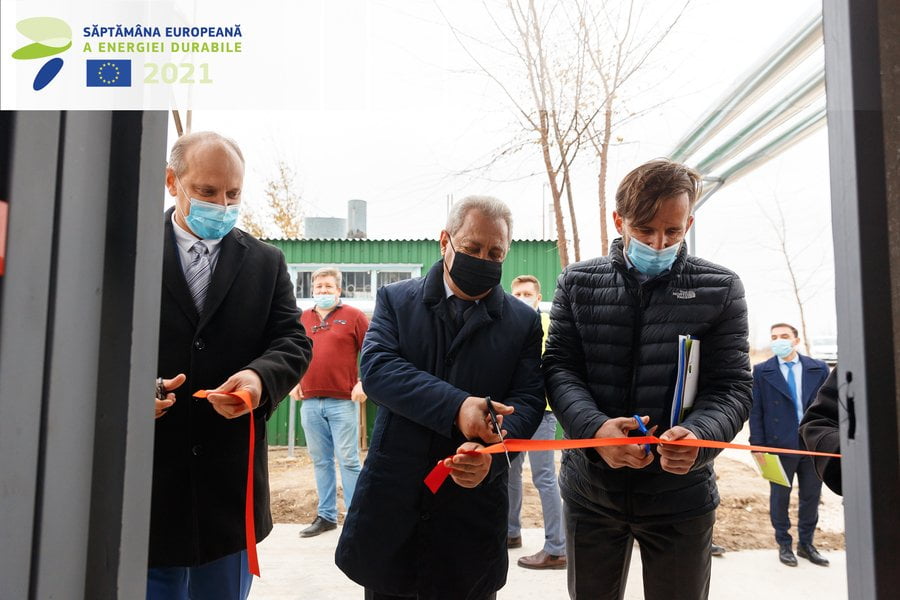
The annual monetary savings of Cantemir represent 91.817 euro or 15% of the total annual budget of the town, as a result of the project implemented with the financial support of the European Union.
The gymnasium “Mihai Eminescu” from Cantemir town is the only public institution in the Republic of Moldova that, with the financial support of the European Union, has a biomass heating plant using dry tree and vine branches collected after pruning the orchards and vineyards, produced from the vegetable waste provided by the winemakers from the region. Besides the diversification of energy sources, the heating system contributes to environmental protection by avoiding illegal practices of burning vegetable mass in the open air. Cantemir’s innovative example fits within the priorities endorsed at the European level through the EU Sustainable Energy Week (EUSEW), which this year is conducted under the theme “Towards 2030: Reshaping the European Energy System”.
„The successful completion of this project is another great example of the effective cooperation between the European Union and the Republic of Moldova. The tangible results of this project will demonstrate that several co-benefits of the green transition. They range from reduced energy consumption and CO2 emissions to improved comfort for building users and better livelihoods at the same time resulting in improved energy security, which is of utmost importance for the Republic of Moldova. In fact, energy efficiency is a priority for EU assistance and part of the Flagship initiatives under the Economic and Investment plan for Moldova but, also fully in line with the country’s development priorities. To this extent, the strong ownership of the community and the excellent cooperation with the project team and public authorities is a telling example that together we are stronger!” stated Gintautas BARANAUSKAS, Deputy Head of Cooperation at the Delegation of the European Union to the Republic of Moldova.
The demonstration and innovative components were as well carried out in three other educational institutions of Cantemir – in two kindergartens and a Lyceum. In total, the project has over a thousand beneficiaries, of which 303 children have more comfortable temperature and humidity conditions in kindergartens, 643 students have more comfortable indoor conditions in their schools and 151 members of school and kindergarten personnel in more comfortable interior conditions.
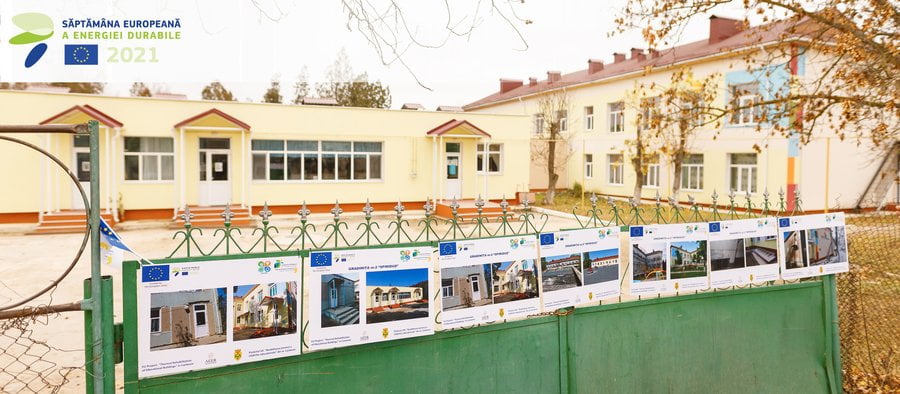
The four educational institutions already recorded energy savings of up to 60%, channeling the money saved towards other needs. Renewable energy sources are used to produce other 678 MWh/year. Thanks to the European Union contribution, the annual monetary savings in Cantemir amounted to 91,817 euros or 15% of the annual budget of the town.
“Eight years ago, we undertook the commitment to cut down the level of CO2 emissions by 20%, having become signatories of the Covenant of Mayors Initiative. We applied European standards and managed to diversify the types of energy. Nowadays, our town applies ecologically intelligent solutions, which are enjoyed by all its inhabitants”, Roman Ciubaciuc, Mayor of Cantemir town, mentioned.
The Director of the Alliance for Energy Efficiency and Renewables, Irina Plis, highlighted the support of the development partners and appreciated the local contribution in the implementation of the project.
On 8 November 2021, on Cantemir Town Day, all guests and participants of the event had an opportunity to visit the educational institutions rehabilitated within the framework of the project “Thermal Rehabilitation of Educational Buildings in Cantemir”, implemented by Cantemir Town Hall, in partnership with the Public Association “Alliance for Energy Efficiency and Renewables”, with the financial support of the European Union, under the programme “Covenant of Mayors – Demonstration Projects”.
About the Project “Thermal Rehabilitation of Educational Buildings in Cantemir”:
The total cost of the project is 951,712 euro, of which 674,240 euro was a grant provided by the European Union, and 277,473 euro was the national and local contribution provided by the Agency for Energy Efficiency, Cantemir Town Hall, Cantemir District Council and the Global Environment Facility. These investments contribute to the reduction of CO2 emissions, by 699 tons / year, which represents 84% less CO2 at the level of educational institutions. Cantemir, with about 5,000 inhabitants, joined the EU initiative of the Covenant of Mayors on Climate and Energy in 2013 and developed an Action Plan on Sustainable Energy.
The biomass heating plant is just one of the innovations applied at the Gymnasium “Mihai Eminescu” in Cantemir. The Gymnasium building walls, roof, basement and plinth have been thermally insulated, the heating system has been refurbished by installing an Individual Heating Point, which automatically adjusts the heat (temperature) parameters, depending on the outdoor air temperature, and ensures the supply of hot water. Likewise, there is a photovoltaic micro-power station installed on the building roof with the nominal capacity of 5 kW, connected to the distributing system through Net Metering. Thus, significant savings have been achieved through the compensation of electricity consumption. Thanks to the European Union support, more than 500 pupils attending the Gymnasium “Mihai Eminescu” in Cantemir enjoy the comfort offered in line with the nZEB type of building (with energy consumption close to zero). Winemakers in the region have agreed to provide vegetable waste while with the help of a cutting machine, the biomass is collected, shredded and, during the cold season it is used for heating classrooms.
